In our blog today we want to introduce you to the Top 20 things to do in Lviv Ukraine, one of the most beautiful places in the whole country. Come with us on a trip to one of the most cosmopolitan places in the country and discover the old Polish Lwów, the Austrian Lemberg and the Ukrainian Lviv! In the article we have compiled all the important information for you.
Check out these Top 20 Things to do in Lviv Ukraine
Let’s start with our list of the most beautiful places in Lviv Ukraine. If you need practical tips for your visit to Lviv, just click here.
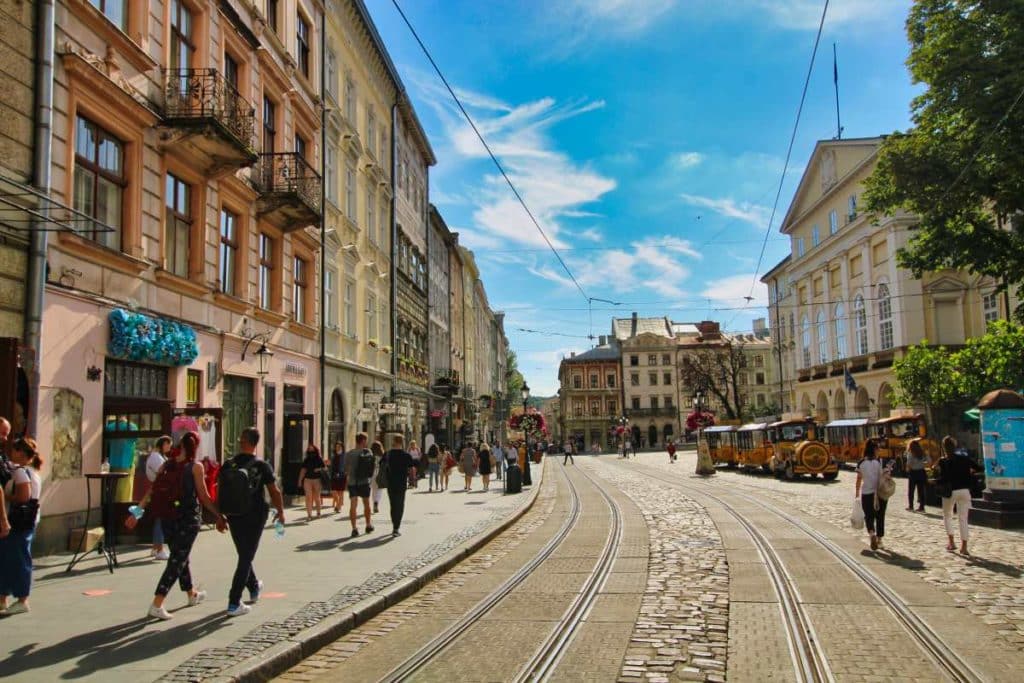
Market Square
The Market Square is definitely one of the most beautiful places in the city. Magnificent Renaissance houses with colorful facades, cozy cafes, old streetcars making their way – a place can hardly be more romantic. There are also numerous museums here and in winter a part of the square turns into an ice rink. But even otherwise there is always something going on here. Street musicians set the mood and young couples meet at one of the four fountains. These remind us of Diana, Neptune, Amphitrite and Adonis in the corners of the rectangular market square.
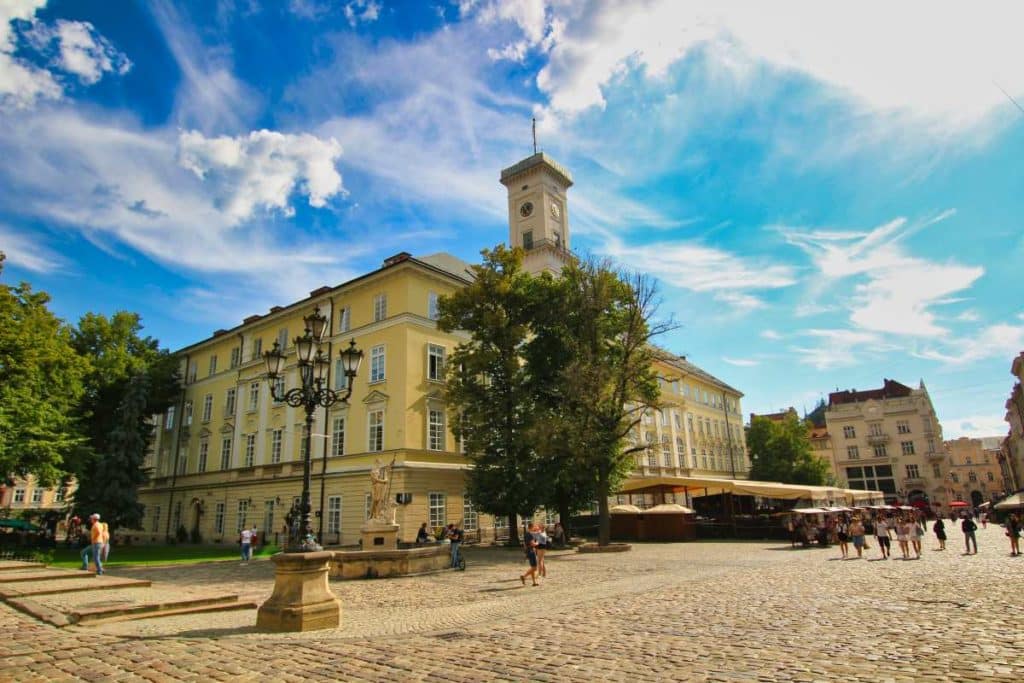
Town hall
The most imposing building on the market square is in its center, in my opinion. Okay, there is also a house with a pitch-black facade, but the town hall definitely attracts all eyes. The classicist masterpiece was built when Lviv was still part of the Habsburg Empire and not called Lviv as it is today. The council hall in the Art Deco style is worth a visit, but is not often available to visitors.
Up high or down into the basement
However, you can dare to climb the tower and enjoy a great view of the old town from there. There is also an interesting exhibition in the basement of the city hall, which actively encourages Lvivians to get involved. And the Grand Café Leopolis is one of my favorite cafés in the “coffee city” of Lviv. Here you can have the delicious Leopolis cake, topped with vanilla sauce. Afterwards you should do a few rounds on the market square, because the cake is a real calorie bomb.
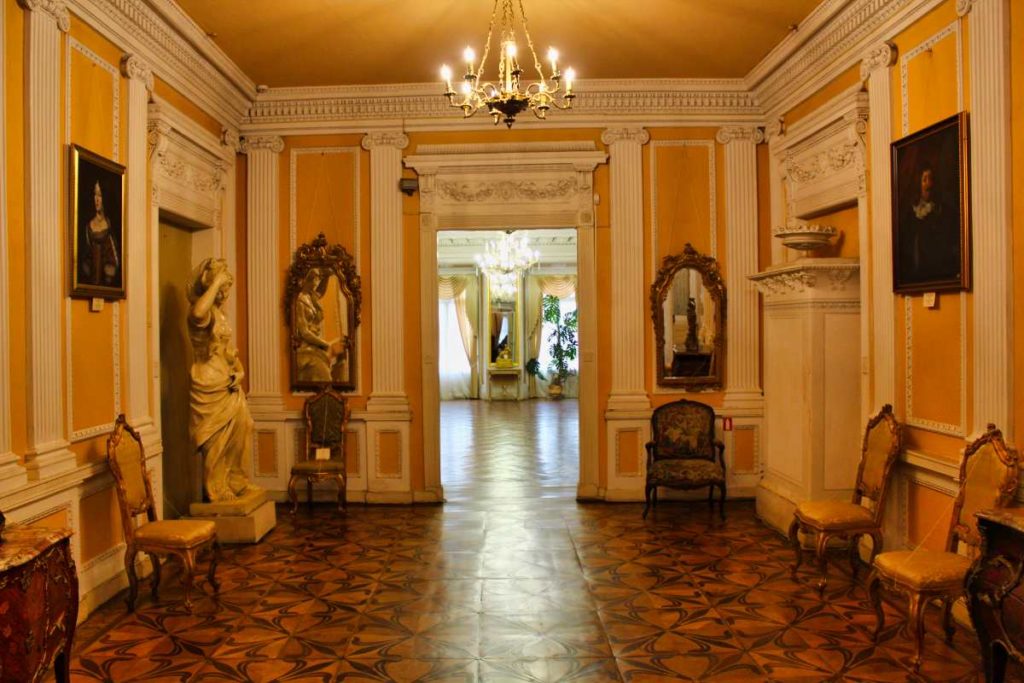
Kornjakt Palace
Lviv used to belong to Poland and was called Lwów. And the city was one of the richest and most important in Poland. No wonder that two Polish kings resided here. They were Władysław IV. Wasa and John III Sobieski. Sobieski, in particular, left his mark on the palace on the Market Square. He was born very close to Lviv. Then, at the beginning of the 19th century, the palace was remodeled in the style of classicism and got its present appearance. Furniture, paintings and ornate clocks are displayed here. In the small throne room you will finally feel like in the times of the king.
An Italian Renaissance courtyard that is not one at all
Part of the palace is also the so-called Italian Court. It looks like a typical Renaissance building and thus fits perfectly into the ensemble of Renaissance buildings on the market square. However, it actually dates from the 20th century and was created when the royal apartments were rebuilt. However, this does not bother the many wedding couples who have their pictures taken here. And you can visit it too, either as part of your visit to the palace or with your own, very cheap ticket.
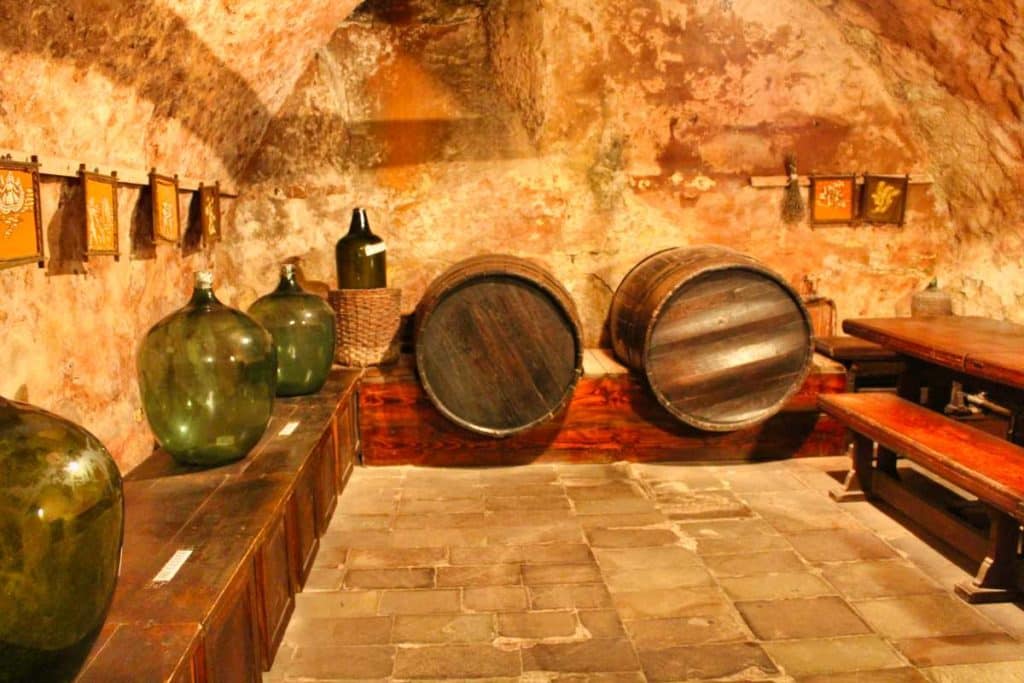
Black Eagle Pharmacy
Not far from the Kornjakt Palace stands a historic pharmacy, which looks relatively inconspicuous from the outside. Here you can still stock up on medicines. But if you step behind the counter, you will reach the actual exhibition. It leads through a small labyrinth through several parts of the building and provides insights into the historical production of medicines.
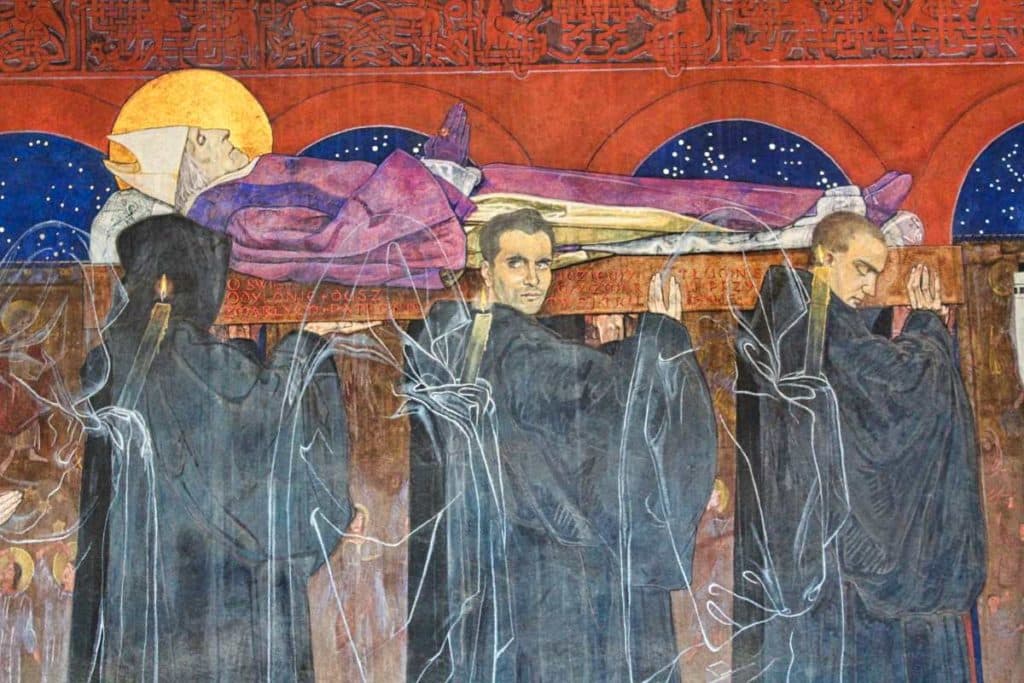
Armenian Cathedral
Spent enough time at the market? Then off to the Armenian Cathedral. Lviv was a real multicultural city and here lived many Armenian merchants who maintained their own neighborhood not far from the market square. Armenian Cathedral is one of the most beautiful, but definitely the most unusual church in the city. It was built in its present form at the beginning of the 20th century. Józef Mehoffer and Jan Henryk Rosen, two famous Polish artists, were commissioned to decorate it. Both were adherents of the Art Nouveau style and thus a colorful overall picture with a creepy touch was created. In the picture you can see a bishop being buried and accompanied by ghosts, you certainly haven’t seen anything like it. And the depiction of the decapitated John the Baptist is not for the faint of heart.
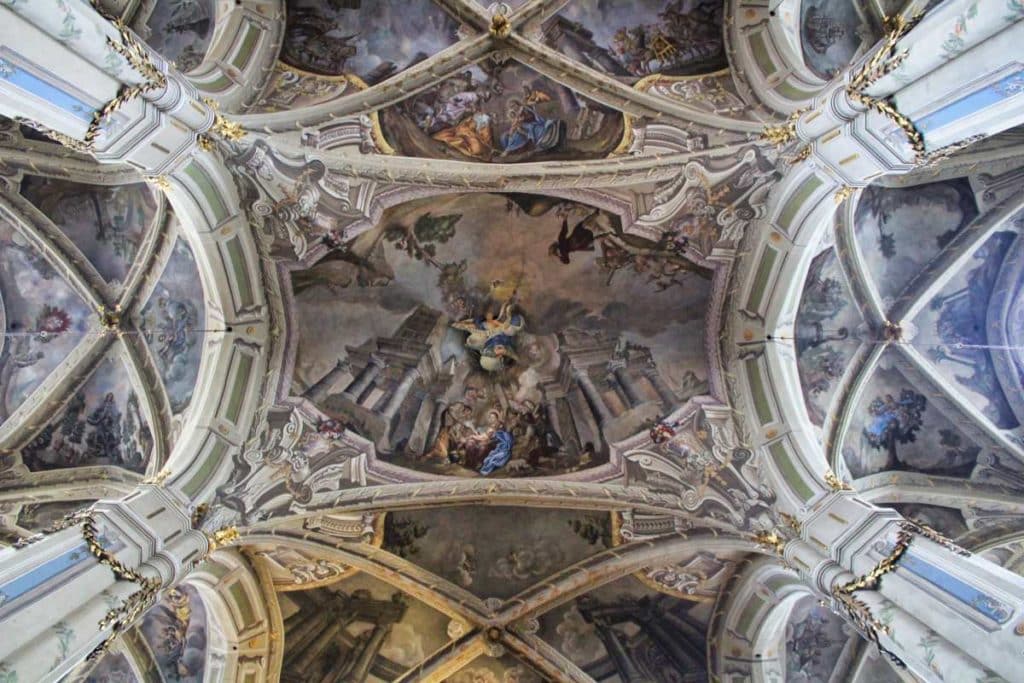
Assumption Cathedral
You can see the great influence Poland had on Lviv in and around the Assumption Cathedral. It is still the city’s main Roman Catholic church and features magnificent frescoes and altars, stained glass windows and relics. It has been honored by Popes John Paul II and Benedict XVI, and even historic events took place here: the Polish King John II. Casimir took an oath here in which he declared Mary, the mother of Jesus, to be the queen of Poland and thus the official head of state.

Golden Rose Synagogue
We have already reported about Christian Poles, Ukrainians and Armenians. In the past, however, Lviv was also strongly influenced by its Jewish population. Unfortunately, this world was irretrievably destroyed by the Nazis and Lviv is still struggling with the burden of the past. There are only a few places in the city where the rich Jewish past is remembered. One of them is the Golden Rose Synagogue. Here, steles in several languages refer to the once magnificent house of worship that was destroyed by the Germans.

Stryjski Park
The city center can be quite hectic. When you need a break, head to Stryjski Park in the south of the city. Here you can walk for hours, relax in a café in a lookout tower, watch the swans at the lake and even ride a miniature train! By the way, Ivan Franko and Mychajlo Hrushevskyj used to live on the northeastern edge of the park. Both of them were among the most important intellectual giants of their time, and their old residences now house museums worth seeing.
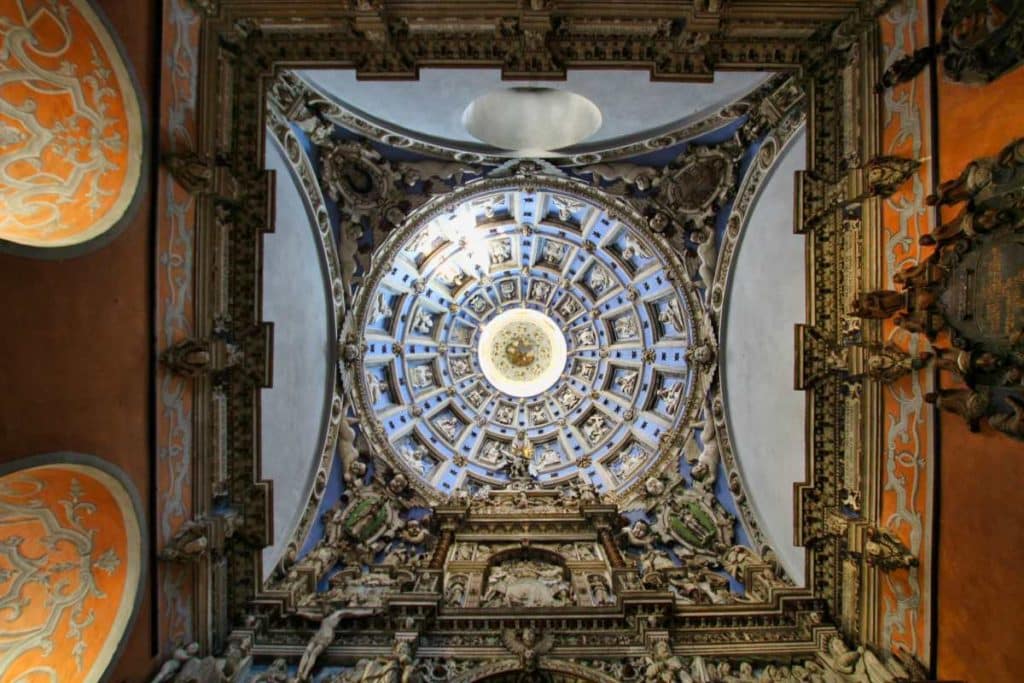
Boim Chapel
The Boim Chapel is a real eye-catcher even from the outside. Like the entire building, it was designed in the late Renaissance style and is one of the most beautiful buildings of this era north of the Alps. The German-born merchant Boim (Böhm) had the chapel built for himself and his wife and thus created an expensive mausoleum for himself. If you want to visit the chapel, however, you’ll have to be a little lucky. The woman who manages the key is not always there.

Freedom Prospectus
The Freedom Prospect is the boulevard of Lviv and divides the old town into two parts. To the east is the “Polish” part with the market square, to the west the “Austrian” part with its many buildings in the style of classicism and art nouveau. On the edge of the wide street numerous museums and restaurants are waiting for you. The wide strip in the middle, on the other hand, is lined with monuments, benches to sit on and fountains.
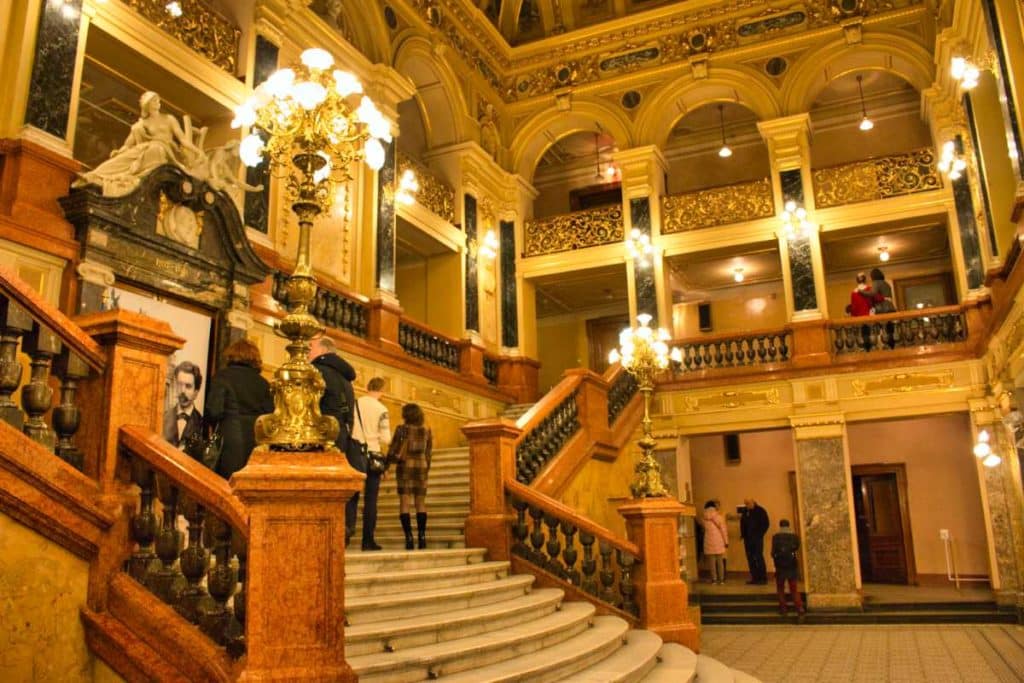
Opera House
However, the most beautiful building on the Freedom Prospect is without any doubt the Opera House. It is the undisputed landmark of the city and an architectural masterpiece. The building is based on the Viennese Ringstrasse architecture and was designed by Zygmunt Gorgolewski. Inside, you don’t know where to look first because of all the splendor. The paintings, stucco ornaments and marble in different colors are a feast for the eyes. And best of all, the tickets are really cheap and you can attend a performance here for little money.
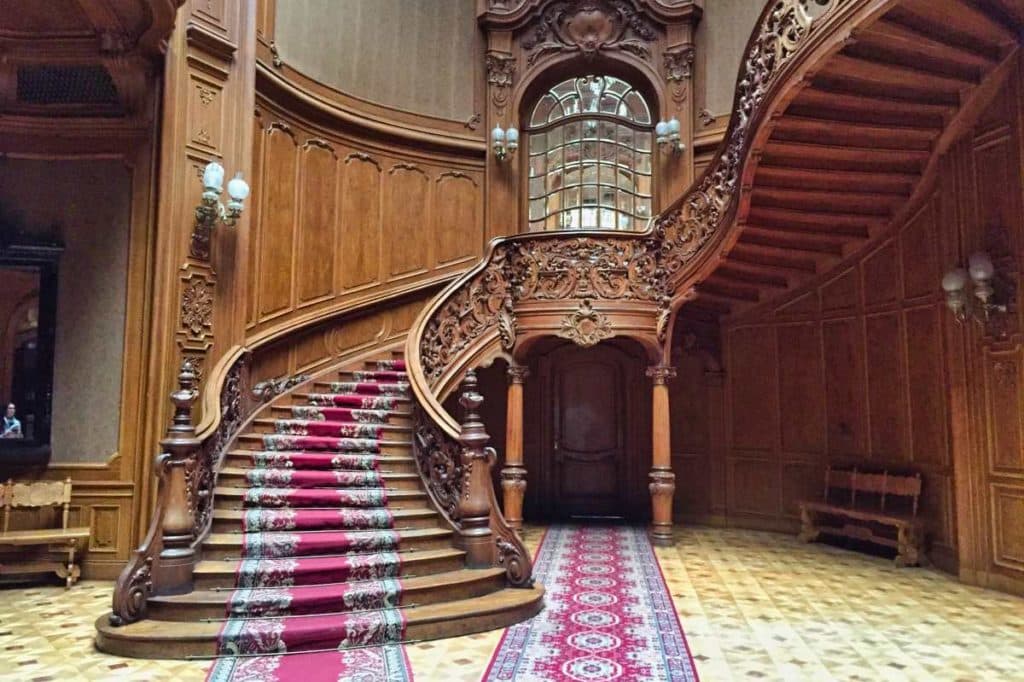
House of scientists
Ever heard of Fellner & Helmer? There is hardly a capital city in Eastern Europe where the Viennese architectural firm did not erect a magnificent theater building around 1900. But they also designed other buildings like this former casino with its light-flooded atrium. There is a curved wooden staircase leading up to the ballrooms and the library. Conferences are always held here and Pope John Paul II even used the building for audiences.
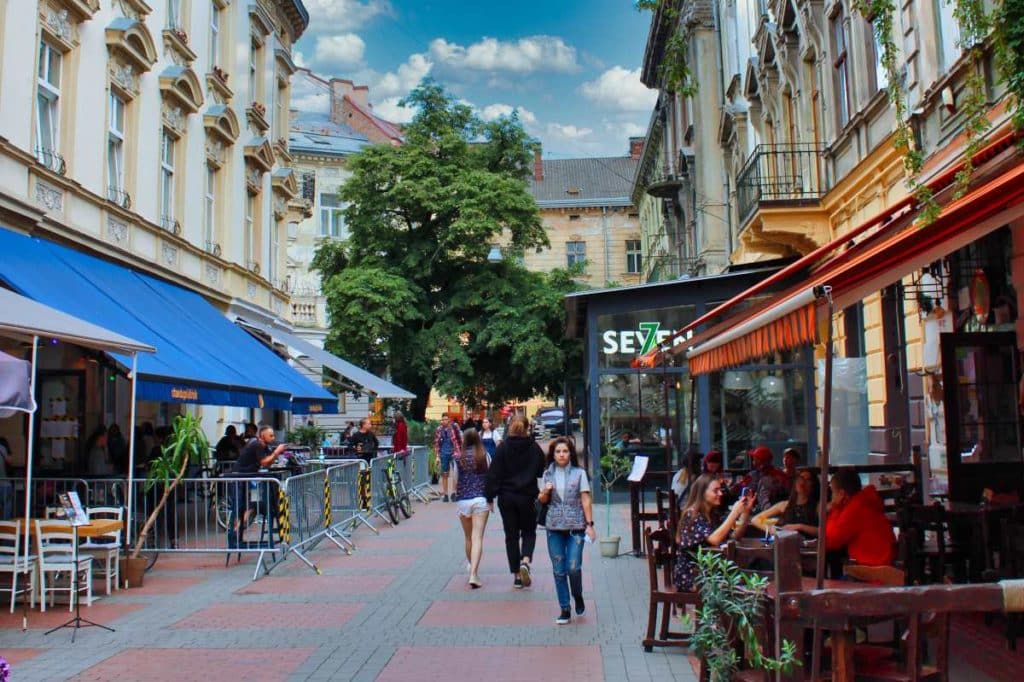
Krywa Lypa
Around the market square you can always find something to eat and drink. But the Krywa Lypa passage in the “Austrian” part of the city is also beautiful. In the “leaning linden” as the street is called in English, there is actually a linden tree. But that’s not why anyone comes here. Rather, it’s the many restaurants, cafés and craft beer bars that attract the young crowd. One of the coolest places in town, especially in summer!
Potocki Palace
Alfred Joseph Potocki, the then Prime Minister of Austria-Hungary, had a magnificent palace built in the city in the style of historicism. In 1919 an American airplane crashed into the palace, which was repaired before the Second World War. The rooms, some of which are decorated with precious silk walls, house an exhibition of European art from the 14th to 18th centuries that is well worth seeing. The ballroom is particularly beautiful. It is also known as the Hall of Mirrors and is now used by the Ukrainian president for prestigious receptions.
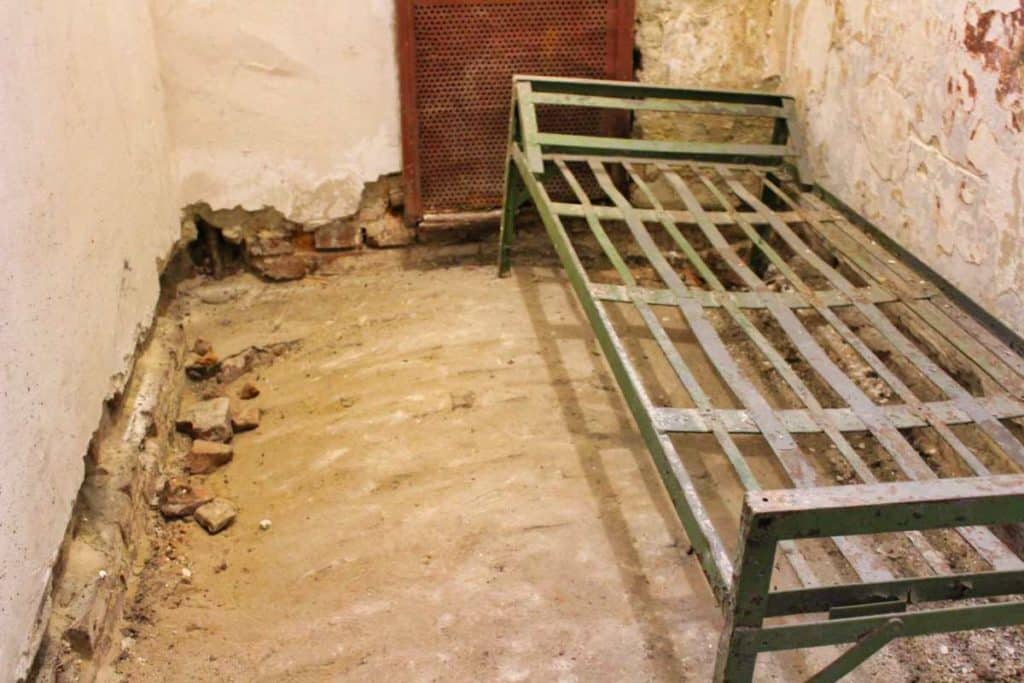
Lonzki Prison
There are, unfortunately, some places in the city connected with the terrible past of Lviv in the period between 1939 and 1945. The Lonzki Prison first housed an Austrian garrison and in the interwar period a Polish prison. After the Red Army invaded the city in 1939, the Soviet secret service NKVD then used the place for political prisoners and murdered numerous prisoners. When the Nazis conquered the city in 1941, they exploited this fact for propaganda purposes and continued to use the prison thereafter. For some years now it has housed a depressing museum.
Saint George Cathedral
The golden domes of St. George’s Cathedral can be seen from many places in the city. It is one of the most important places of the Ukrainian Greek Catholic Church. Here the German sculptor Johann Georg Pinsel, who is also commemorated by his own museum in Lviv, created numerous masterpieces. The late Baroque and Rococo interior is among the most beautiful Lviv has to offer. The complex also includes a crypt with the tomb of Andrei Sheptytsky. He was one of the most influential clergymen in Ukraine and saved the lives of many Jews. The church has become something of a pilgrimage center because of his grave.
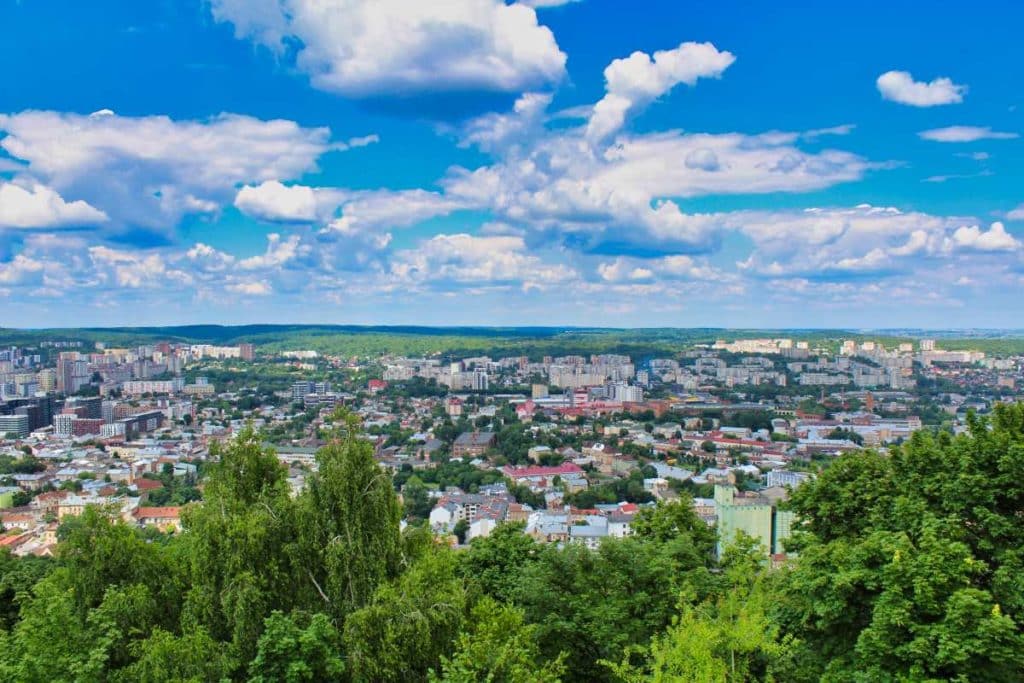
High castle
You liked the view from the town hall tower? It gets even better: The High Castle offers a fabulous view of the city. However, there is no castle here. It is a hill not far from the center, on which several beautiful paths lead through a park landscape. Especially at sunset, the quite strenuous climb is worthwhile. Then the brightly lit city literally lies at your feet in all its splendor.
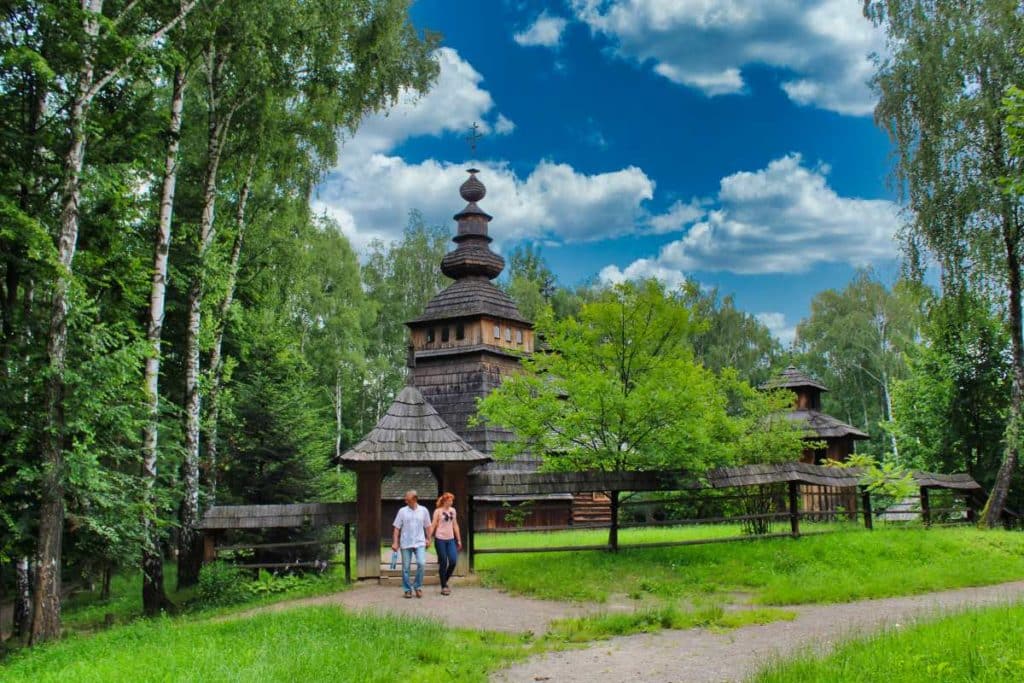
Shevchenko Grove
In the east of Lviv there are two significant sights, Shevchenko Grove and Lychakivsky Cemetery. The grove is also known as the “Museum of Folk Architecture”. Covering an area of 60 hectares, you can relax here, watch traditional craftsmen at work or visit one of the wooden churches for which the Carpathians are famous. Many buildings commemorate the Boyks, Lemks and Hutsuls, three ethnic minorities in western Ukraine. There is even a small zoo to discover, so take plenty of time to visit!
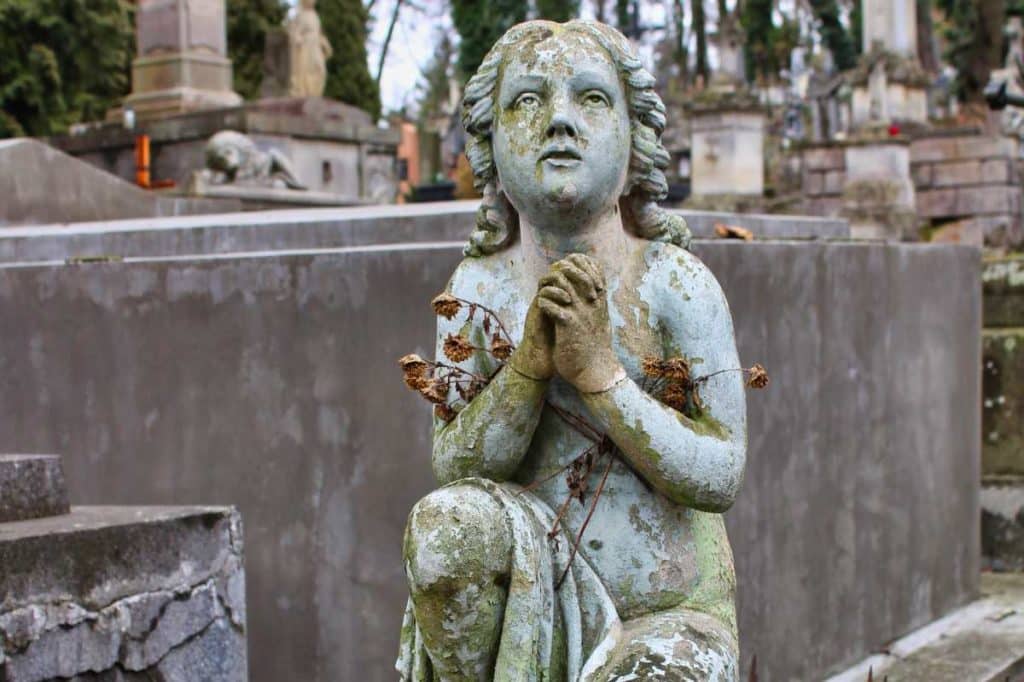
Lychakiwski Cemetery
“Lützenhof Cemetery” was the former name of the burial ground in the district of Lychakiv. As late as the 18th century, the dead were buried around the churches. However, to prevent epidemics, the Austrian emperor banished the graves to the outskirts of the city. And so, in the course of time, a huge complex was created, which reflects the eventful past of the city like hardly any other place. There are around 300,000 gravestones and 3,000 sculptures here, and many are artistically designed. Germans lie here alongside Ukrainians, Russians and Poles. Some of the monuments and graves are politically explosive, but that’s why it’s worth a visit. But don’t forget the map at the entrance, otherwise you can get hopelessly lost here!
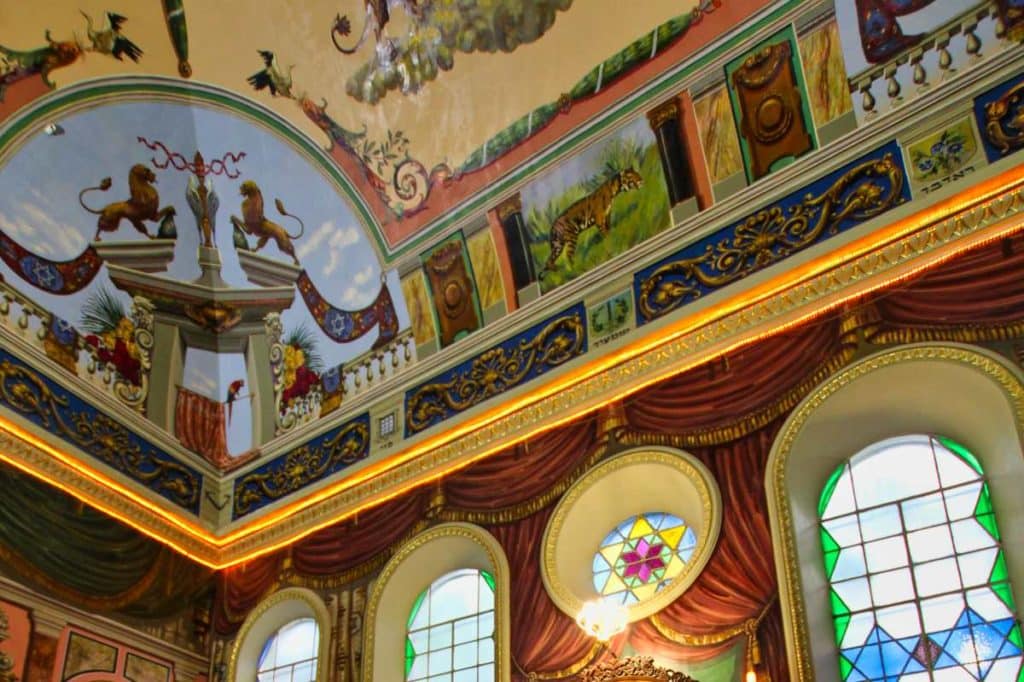
Zori Gilod Synagogue
As described above, unfortunately, the Golden Rose Synagogue no longer exists. There used to be fifty synagogues in Lviv. However, this synagogue has been preserved near Lviv’s main railway station, which is worth seeing. It still serves as a place of worship for Lviv Jews. If you ask nicely at the entrance, they might let you in. Then you can admire the artistic ceiling painting from the pen of Maximilian Kugel and get at least an impression of the rich Jewish past of the city.
Lviv book tip
- In his book East West Street*, British journalist Philippe Sands describes how the two Lviv residents Raphael Lemkin and Hersch Lauterpacht coined the terms “crimes against humanity” and “genocide.” He simultaneously draws a moving portrait of Lviv Ukraine at the time of World War II and of the two protagonists, who went through a highly divergent development.
No products found.
- What are your favourite sights in Lviv Ukraine?
No products found.
- Let uns know and leave a comment!
No products found.


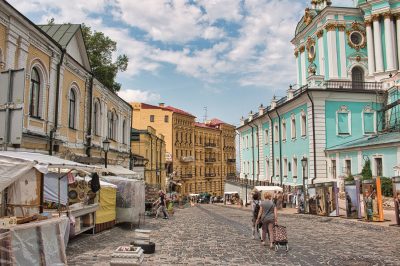
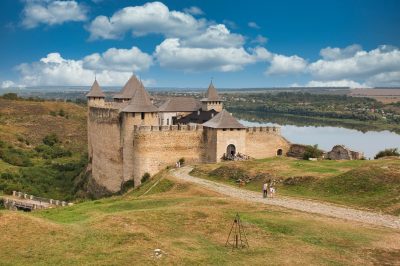
Thank you for this! Very useful! I wonder, though, why you didn’t use the official Ukrainian to English transliteration? Very confusing.
Hi Harry, thanks for the tip. We do write our articles in German and therefore sometimes the articles are not properly transferred. I updated the spelling and it should be fine now! Have a great day and make sure to follow us on Facebook! Best, Peter